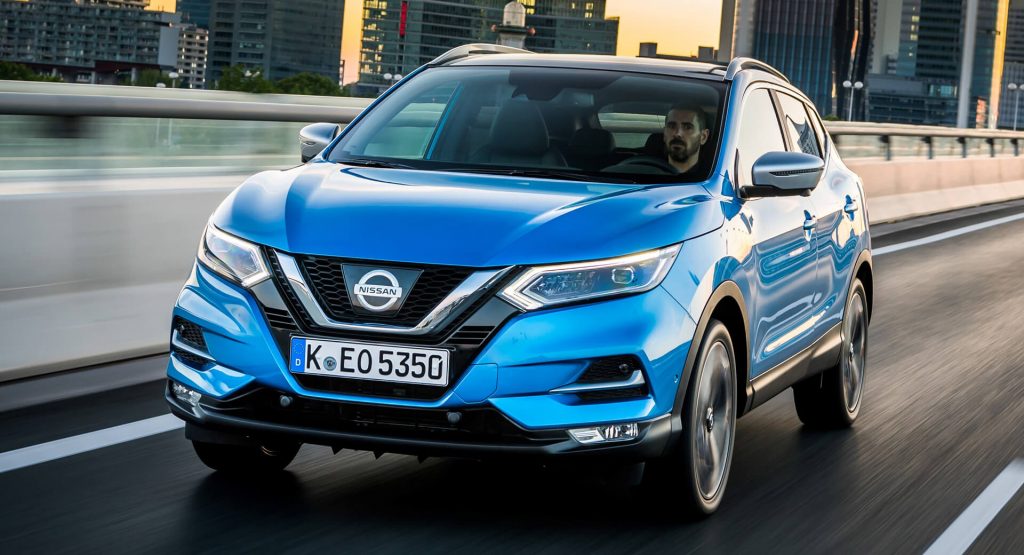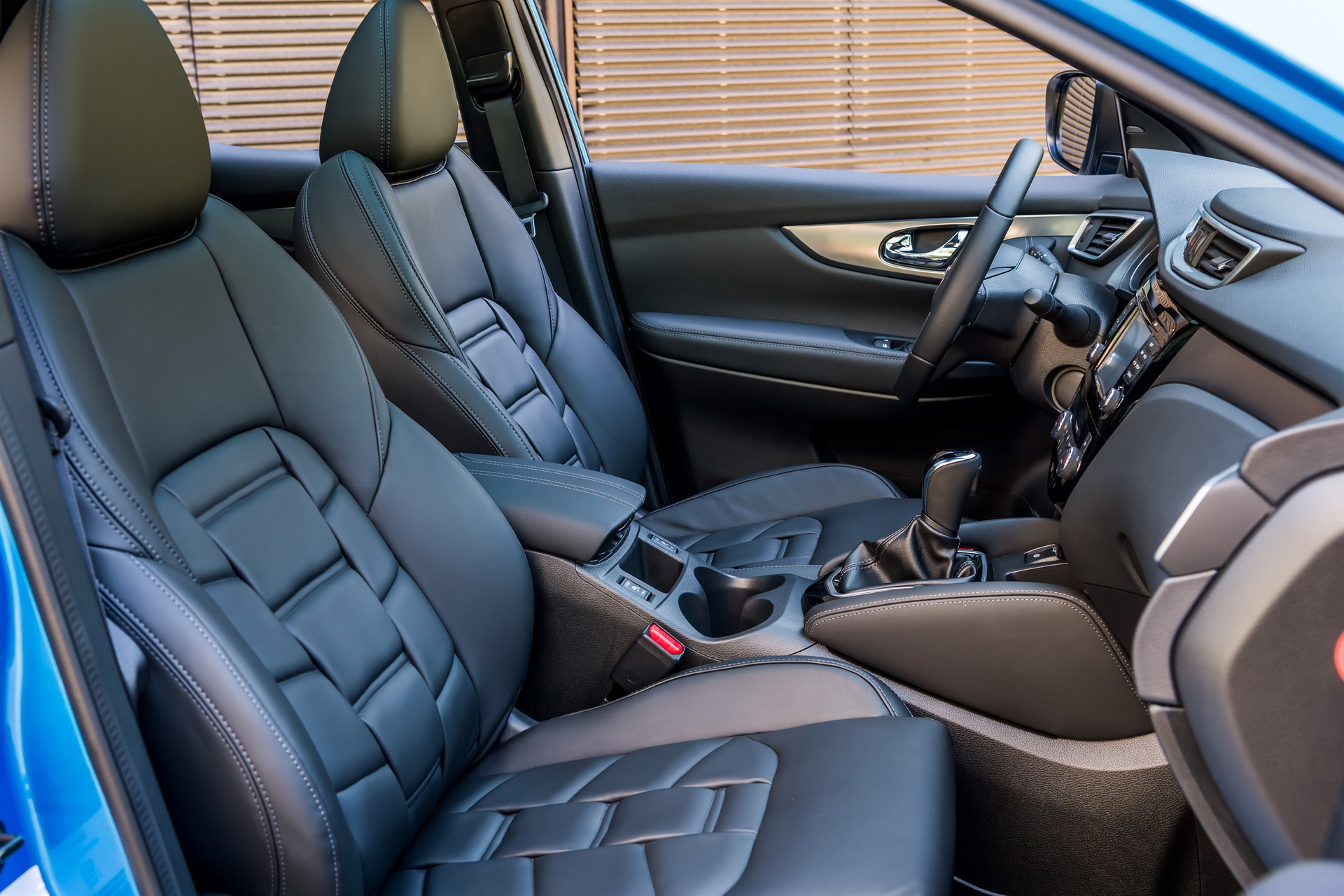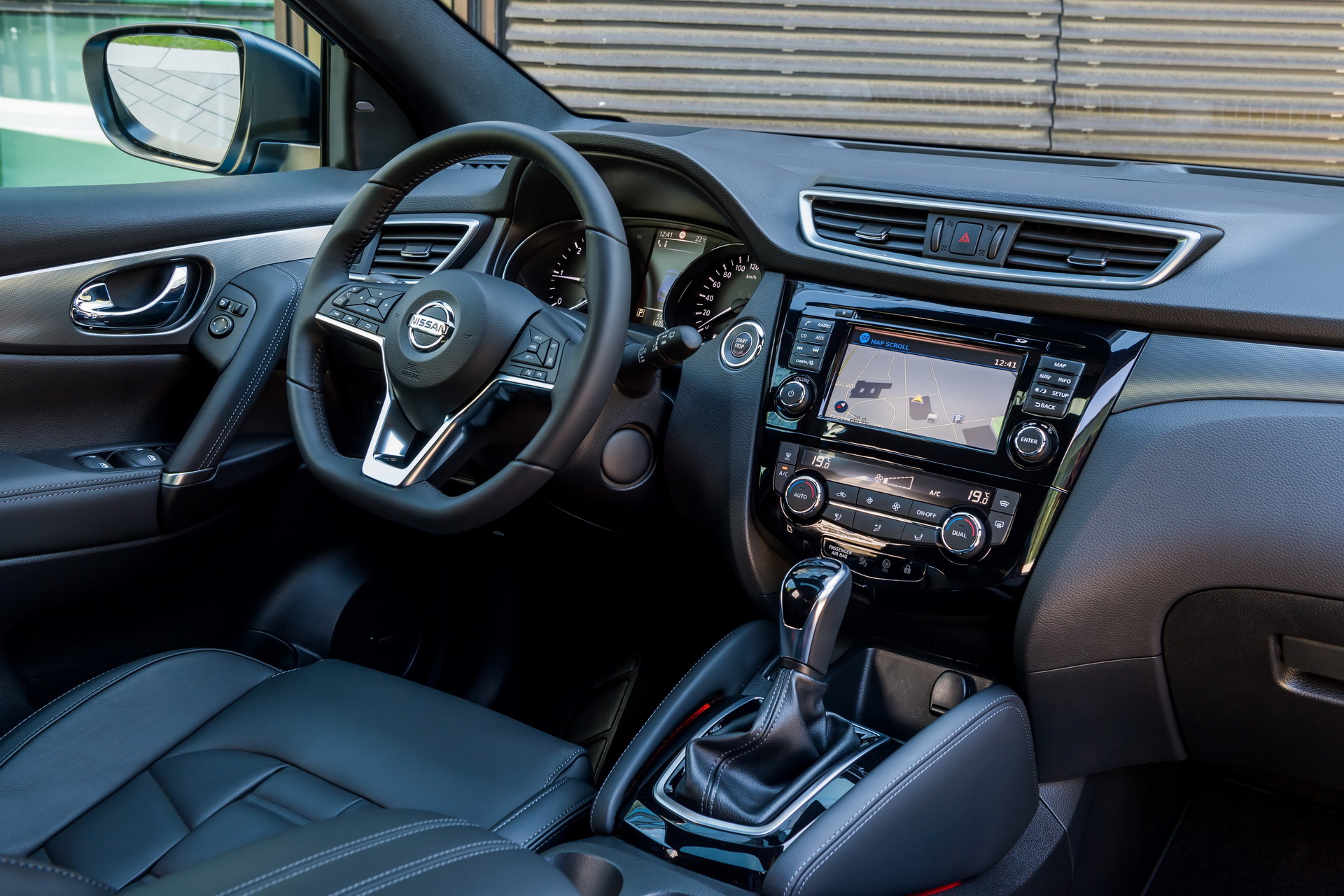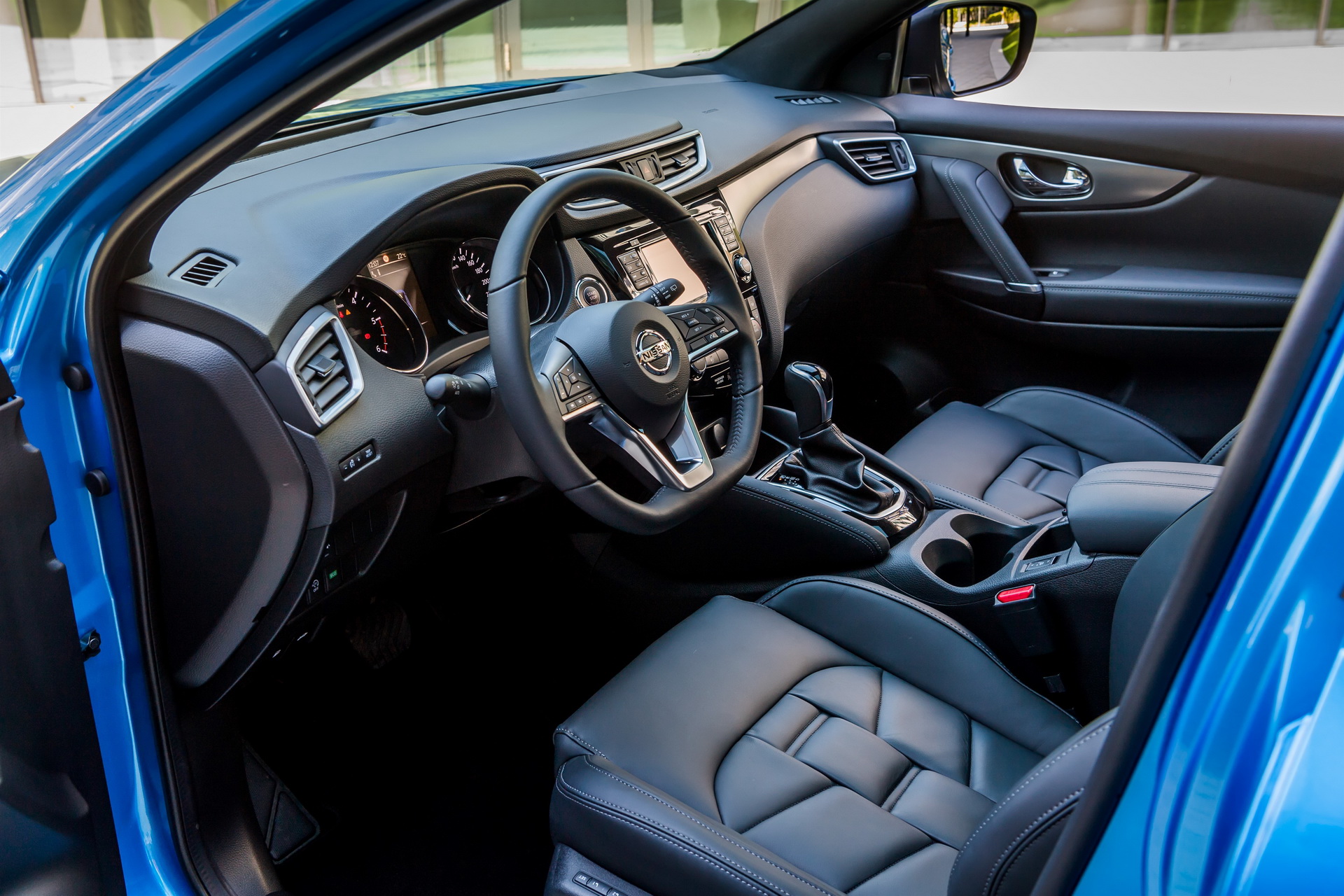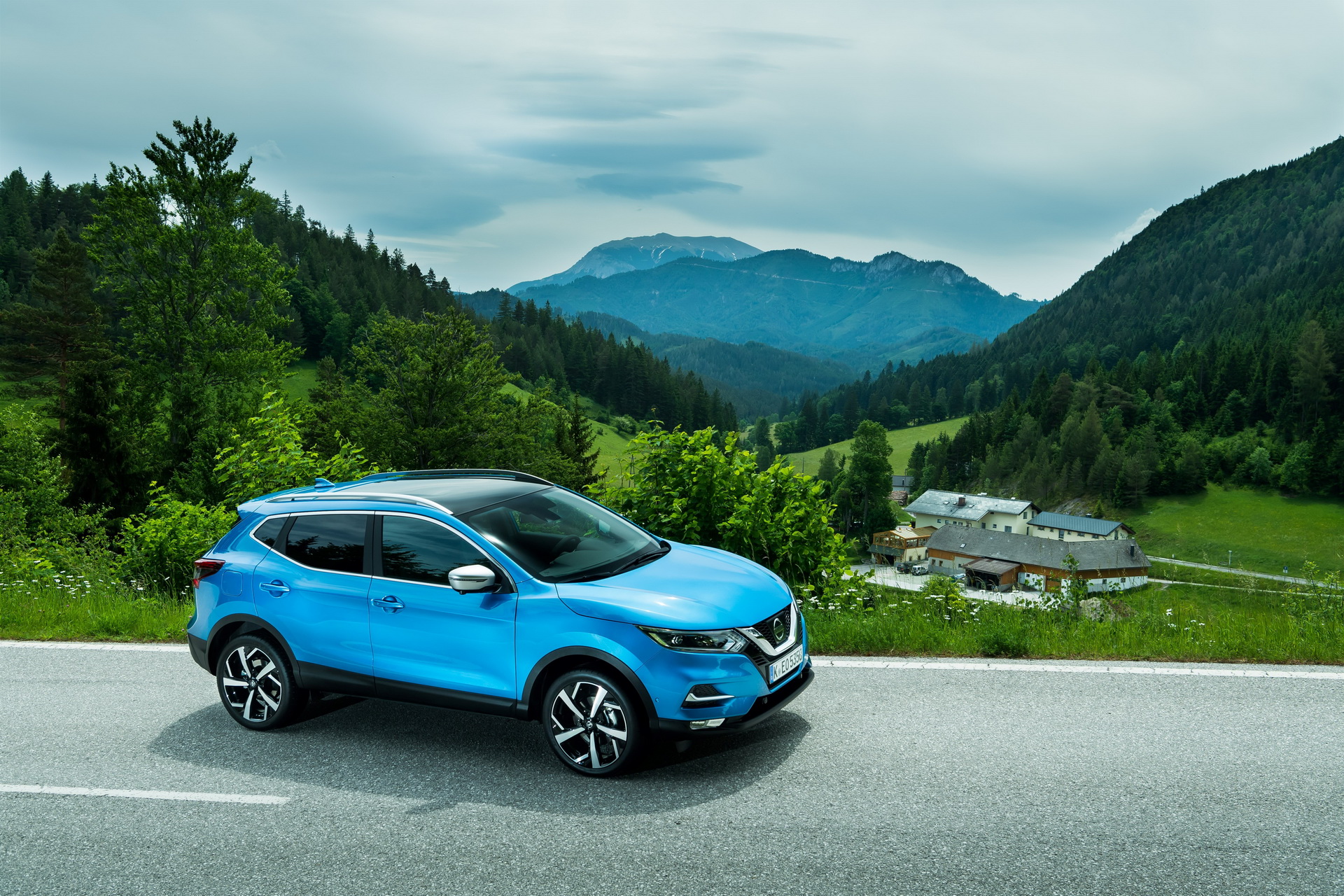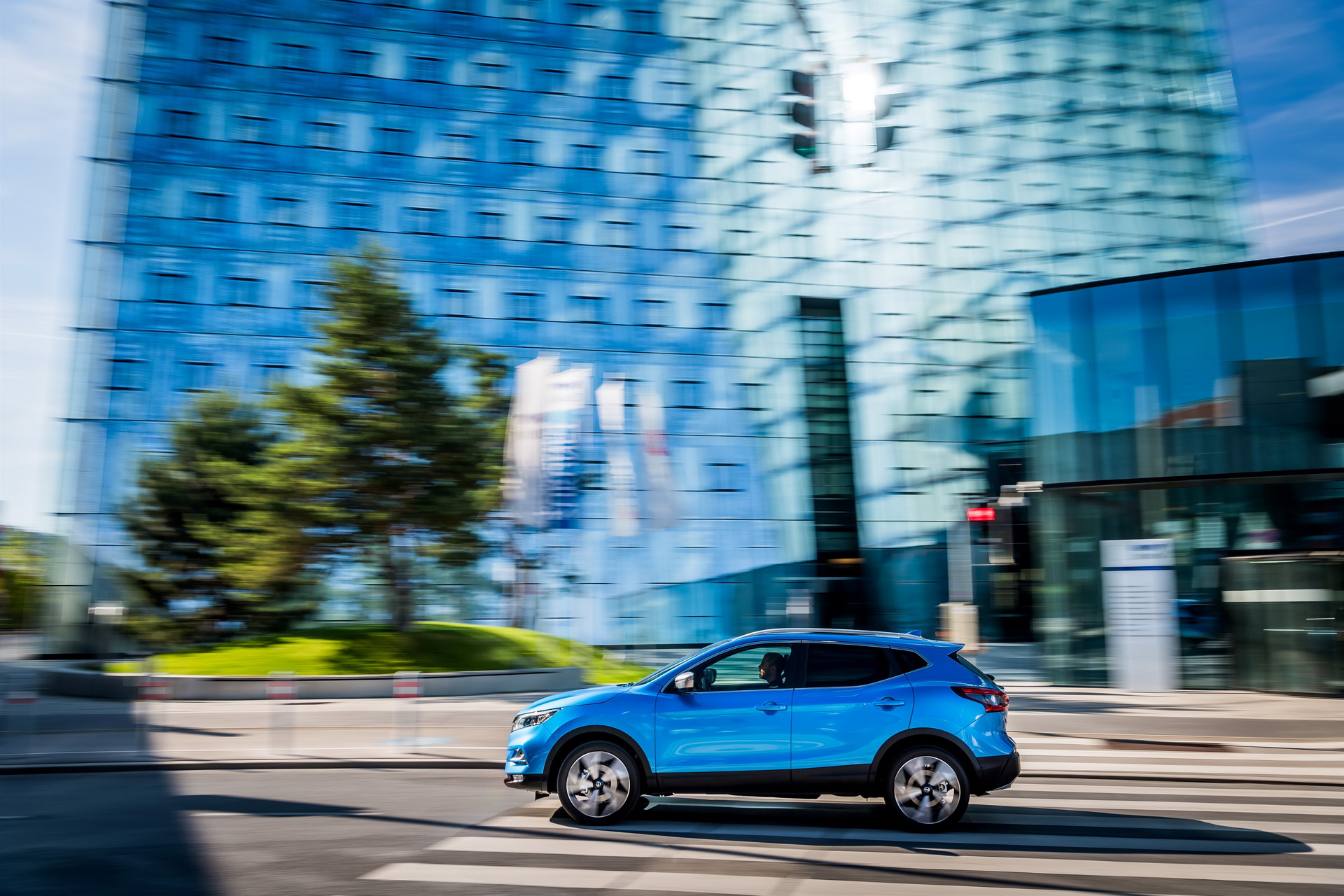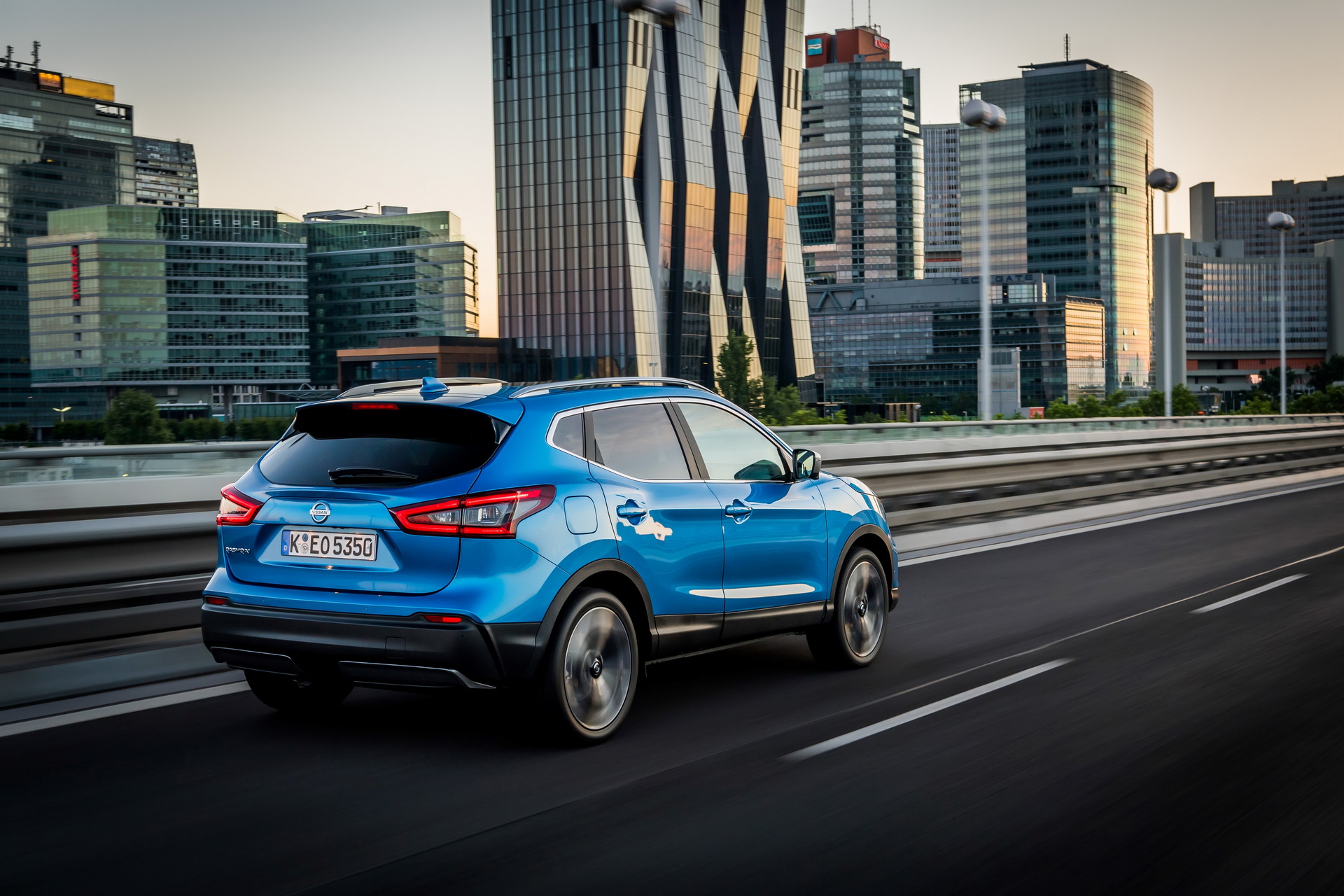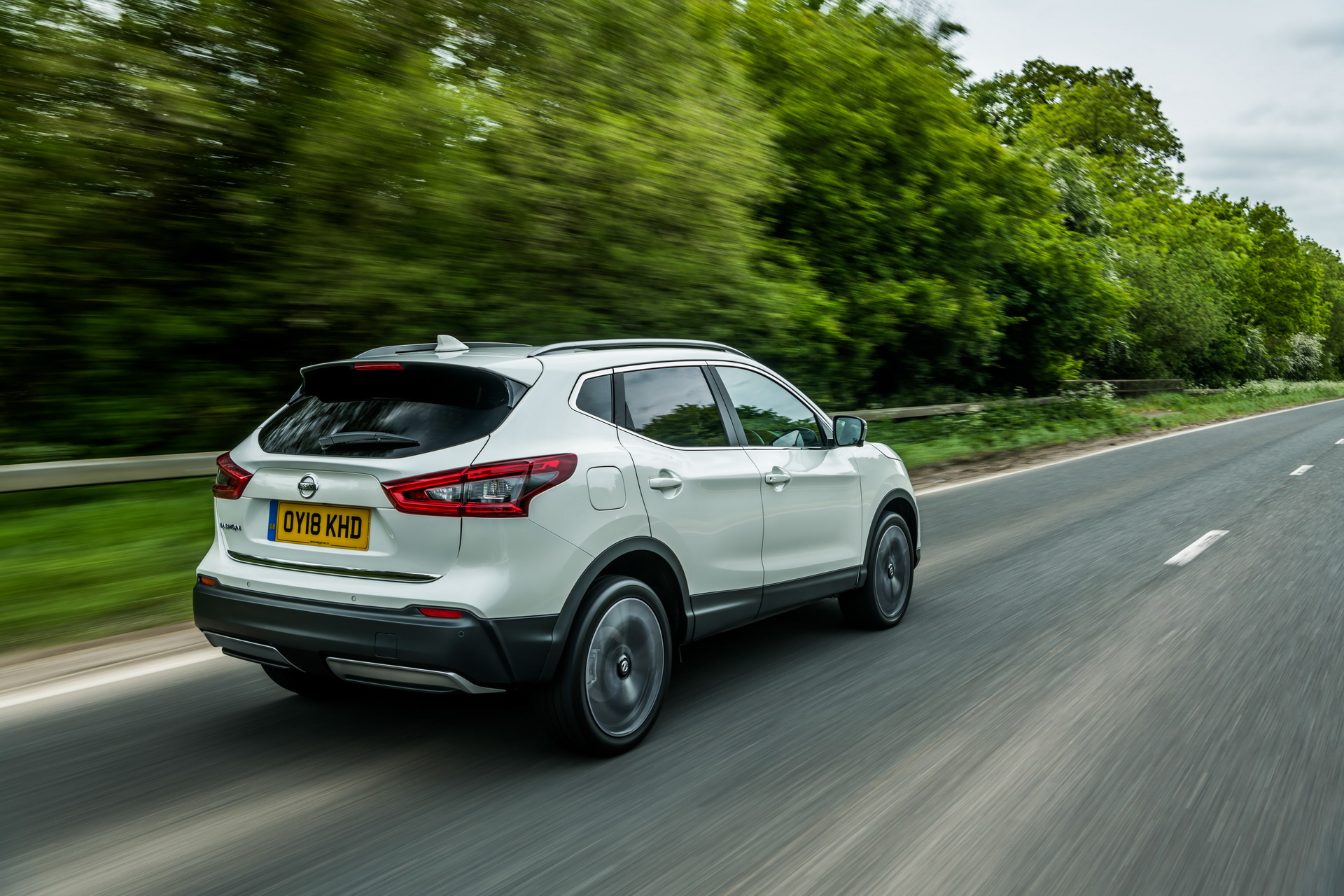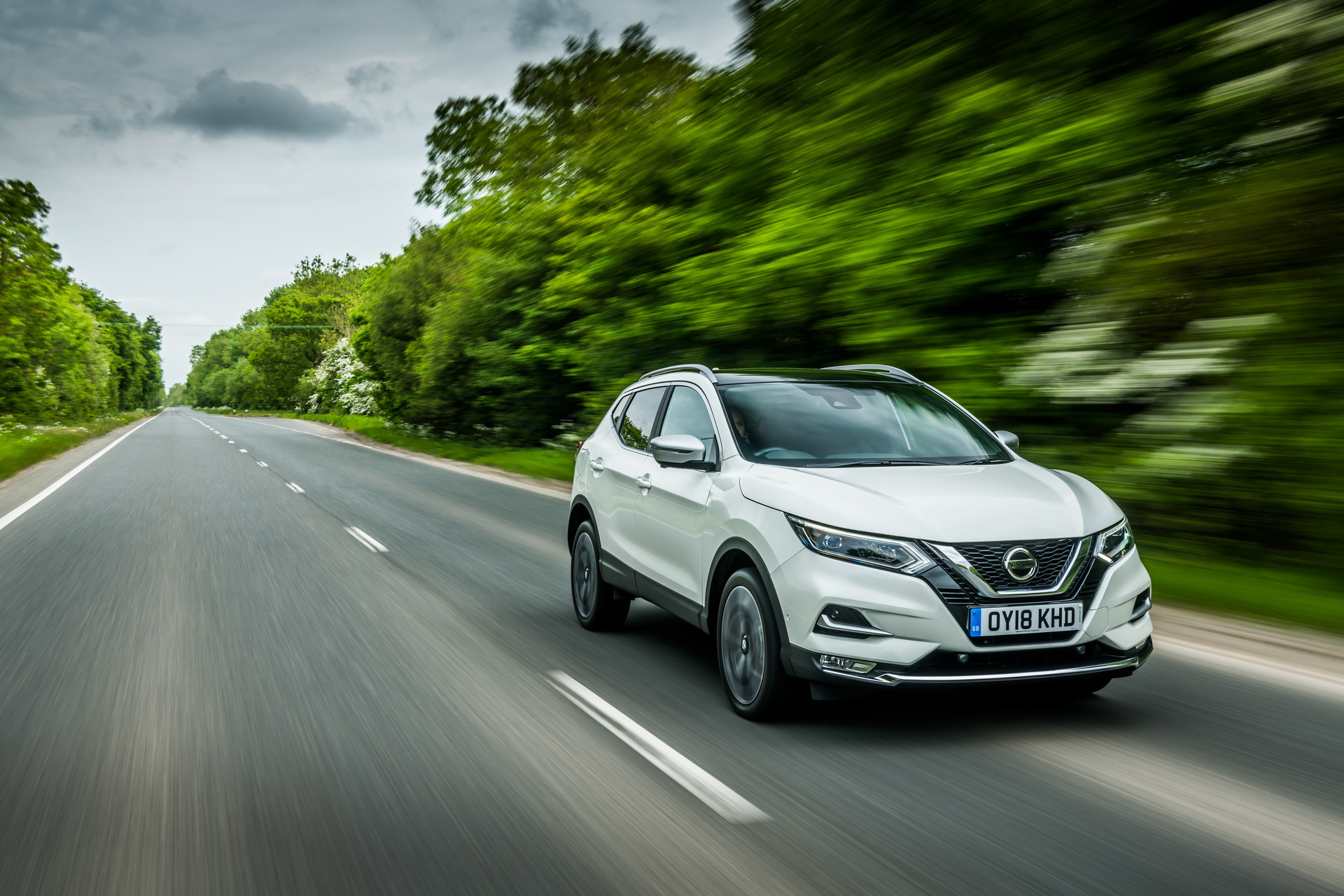Nissan kept the first generation Qashqai in production between 2006 and 2013. Its replacement is current 5 years old, so the company is thinking about its successor.
If everything goes as planned, then the third generation compact SUV will be on sale in 2020, reports AutoExpress. And besides the usual design changes, it will allegedly adopt electrification, with both hybrid and plug-in hybrid powertrains.
Nissan’s production planning vice president for Europe, Ponz Pandikuthira, said: “We are looking at a new platform because that’s what’s best to accommodate electrified technologies. It probably won’t include full electrifications, because that’s a complete tear-up, and the investment required for that would be considerably higher.”
The new architecture is believed to be a reworked version of the Renault-Nissan Alliance’s CMF, which will have to support electrified powertrains. Nissan’s existing e-Power unit combines an internal combustion engine that acts as a generator, feeding the battery pack, which then sends the required juice to the electric motor that powers the wheels.
Also Read: Facelifted 2018 Nissan Qashqai SUV Gets Semi-Autonomous Tech [50 Pics+Video]
This technology is already being used by the Nissan Note in Japan, but as Pandikuthira put it, “the biggest difference when you do these onboard generator vehicles is highway driving”. The official said that “in Japan, they typically don’t go above 50-65mph (80-105km/h), and admitted that they’re “investigating the ePower technology for Europe.”
“Here in Europe, you do 80-85mph (~130-140km/h) on a regular basis. At those speeds, you end up depleting the battery very quickly, so the range extender has to work really hard to keep the energy going, and then it goes out of its range of efficiency”, added the Nissan official.
As far as the plug-in hybrid model goes, it’s said to benefit from Mitsubishi’s know-how in the field. The Japanese brand, which is now owned by Nissan, has the Outlander PHEV, which emits under 50 g/km of CO2 under the new WLTP testing regime, so the Qashqai PHEV should offer similar results.
Reading between the lines reveals Nissan’s ambitions to launch an electric SUV. However, this won’t be the next-gen Qashqai, due to the costs the expensive R&D costs. Instead, the company is expected to launch a standalone battery-powered compact SUV, to take on others in a by-then crowded segment.
Also Watch: 2018 Nissan Qashqai Reviewed: Still The King Of Compact SUVs?
“When you develop an electric car from the ground up to be electric, you make fundamentally different choices to make a more efficient electric car”, said Pandikuthira. “If we took a Qashqai and made it electric, which we could, you introduce compromises. It will never be an efficient internal combustion-engined car, even if it were a hybrid, nor would it be the best electric vehicle.”
In addition to a zero-emission C segment crossover, Nissan is believed to plan at least two more others, of subcompact and family sizes, which means Juke- and X-Trail-sized models. These should be underpinned by an entirely new platform, which will include battery-powered vehicles from Renault and Mitsubishi, too.







